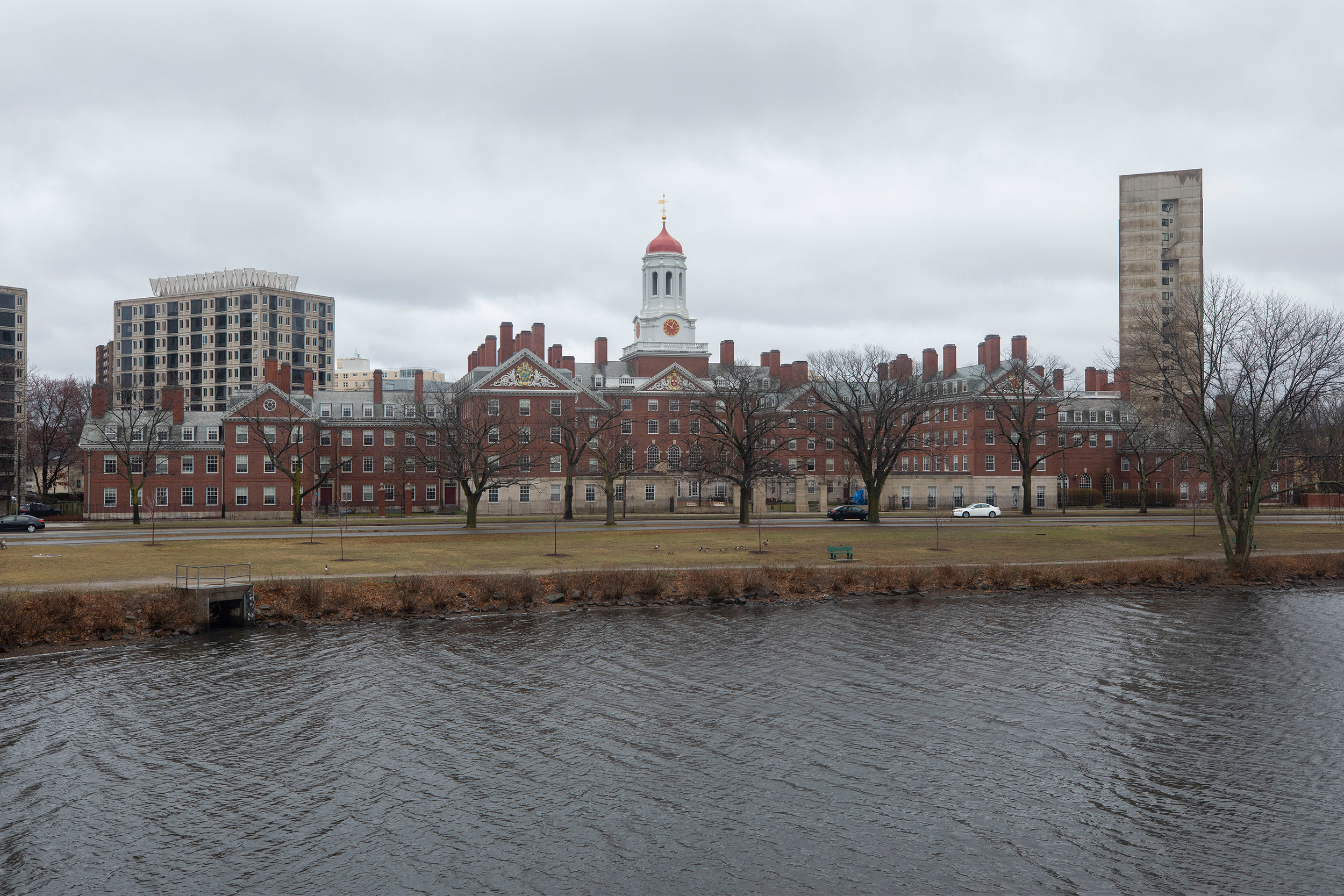
With a $250,000 donation, Harvard University helps Cambridge create a temporary emergency shelter.
Kris Snibbe/Harvard file photo
Harvard and MIT donate $500,000 to Cambridge
Will support creation of city’s temporary emergency shelter
Harvard University and the Massachusetts Institute of Technology (MIT) have made matching donations of $250,000 each to the city of Cambridge to cover costs associated with the creation of a temporary emergency shelter at the War Memorial Recreation Center, Field House, and garage.
“Since this outbreak began, residents of Cambridge have benefited from the extraordinary generosity and partnership of the city’s leading business and academic institutions,” said Cambridge Mayor Sumbul Siddiqui and City Manager Louis A. DePasquale in a joint statement announcing the $500,ooo donation.
“Harvard is proud to join MIT and Cambridge leaders in supporting the city’s homeless residents and ensuring that they have access to appropriate housing, food, health care and mental health services during this unprecedented public health crisis,” said Harvard President Larry Bacow. “From emergency housing, to PPE, to research and diagnostics, the entire Harvard community is bringing our best to respond to the many and unexpected issues that the novel coronavirus has presented — and we are honored to be working along so many committed partners in this effort in Cambridge, Greater Boston, and around the world.”
“In our ongoing effort to help the city of Cambridge respond to this crisis, supplying financial support to create the emergency shelter was a logical next step,” said MIT President L. Rafael Reif. “As soon as we understood the need, we knew we wanted to help — and we are pleased to partner with Harvard on this critical initiative. MIT will also continue its support of Cambridge’s nonprofits, small businesses, and residents as this crisis unfolds. The leadership of Mayor Siddiqui, City Manager DePasquale, and the City Council have been a powerful inspiration. With each passing day, it becomes more obvious that we are all interdependent, bound together as neighbors.”
[gz_explore id=”301368,301142,301697,301453″ alignment=”right” /]
Last week, the city of Cambridge announced an Emergency Order to use the War Memorial site for a temporary emergency shelter.
“As we grapple with the enormity of this pandemic, we know that the city must provide an appropriate safe location for our homeless community to take shelter, properly isolate or self-quarantine, and stay safe. We are grateful to Harvard and MIT for recognizing the critical importance of this temporary emergency shelter and providing this instrumental funding,” said Siddiqui and DePasquale.
Though hotels, university dormitories, and other housing complexes were discussed and considered, local public health officials pointed to several key variables that made the War Memorial the most fitting for public health needs. Its proximity to health care facilities, quick activation time, physical infrastructure, variety of separable spaces, and secure off street and underground drop-off access were among the most critical factors. Furthermore, the War Memorial’s existing security design is easily augmentable, utilizing a combination of private security for the interior and a dedicated team of Cambridge police officers to provide security for the surrounding community on a 24-hour basis.
For more information on the temporary emergency shelter, visit the website.




